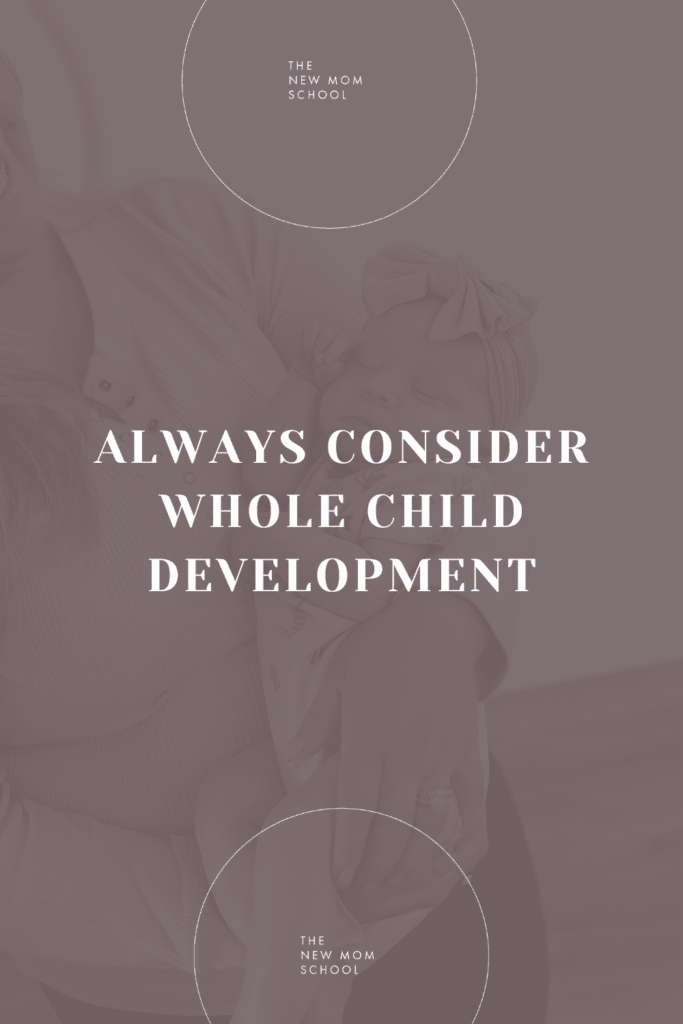Original Article by Hayley Goldberg, LMFT via Heart of Connecting
One of the most important jobs we have as parents is to nurture the development of skills in our children. Through our years of parenting we want to instill healthy like skills and characteristics in our kids. For our children to one day become healthy and well-balanced adults means we need to look at our whole child and support all their development needs rather than focusing on a few isolated skills.
This whole-child approach requires us to focus on building skills in six important areas of development – language, communication and literacy, gross and fine motor skills, creativity, academic skills, spirituality, and social-emotional skills. Here is a brief description of the six developmental domains for you to consider in your everyday parenting interactions with your child.
- Language, Communication, and Literacy: This includes expressive language (speaking), receptive language (listening and understanding), conversation skills, as well as in time your child’s reading and writing skills used to communicate.
- Motor Skills: This domain includes growth and development associated with the body. Gross motor skills are large movements associated with the arms and legs. Fine motor skills are smaller movements performed with hands and fingers. In this domain, consider your child’s balance, strength, coordination, and dexterity.
- Creativity: Developing your child’s sense of wonder and curiosity, and fostering their ability to think creatively, innovatively, independently, and “outside of the box.”
- Academic/Cognitive: Includes your child’s thinking, reasoning, logic, and problem solving skills. For toddlers and preschoolers this also includes their beginning to learn colors, numbers, letters, shapes etc.
- Spirituality: Building your child’s sense of connectedness through their religious beliefs, family traditions, and community practices. This domain helps children find meaning, purpose, and contribution in their lives.
- Social-emotional: Development of internal traits that strengthen your child’s ability to build meaningful relationships and interact positively with others. It also includes the ability to process emotions effectively and to self-regulate when they are upset.
Development for children progresses in a pretty predictable order within generally predictable windows of time. Within this window of time it is important to remember that not all children will be at the same developmental level at the exact same time. When we are considering development it is important to keep in mind that every child is beautifully unique. They will each have their own ‘season for blooming’ and typically, over time, development will even out
It is also very normal for children to show more advanced development in one area than in another. Meet your child where they are at. Support their areas of strength and encourage other areas of growth by providing a wide range of learning opportunities for them to practice and develop new skills without pressure.
Play experiences for children are so powerful. The best way to put deposits into each of these developmental domains for young children is through high quality play experiences. As a parent, when you provide repeated opportunities for your children to play, growth is happening in multiple of the developmental domains all at the same time.
Your parenting counts!


